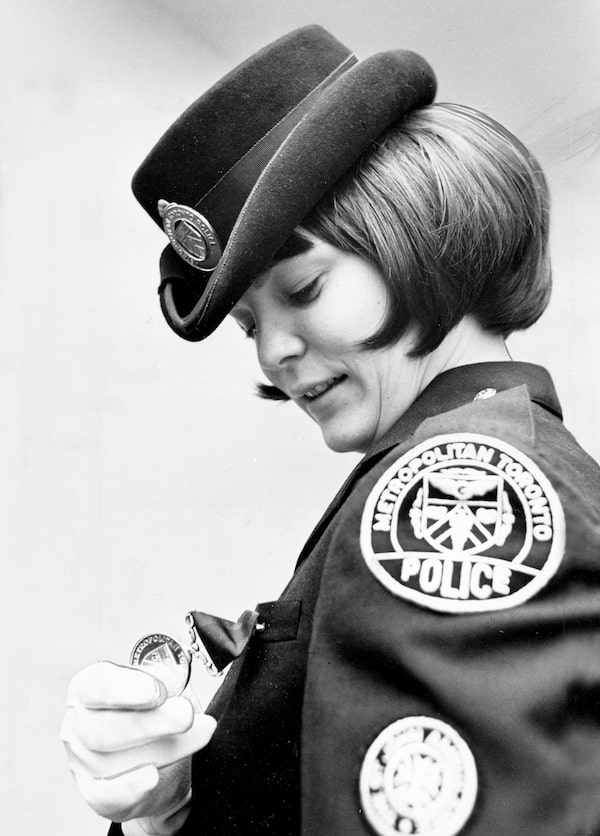Good morning,
Concert hall attack dents Putin’s image as he rallies support for Ukraine war
Last week, President Vladimir Putin confidently shrugged off Western criticism of Russia’s election as neither free nor fair. This weekend, a very different Putin addressed a country shocked by a massacre at a rock concert on Moscow’s outskirts.
Appearing on TV hours after the attack that killed 137 people and wounded more than 100, he sought to make it serve his political goals by alleging a link between the gunmen and Ukraine. He made no mention of the Islamic State group, which claimed responsibility. His image as a tough leader was badly dented by the gunmen, who were unchecked by police or security.
- Four suspects charged in Russia concert hall attack, showing signs of beatings; two admit guilt
- Kremlin says no country is immune to terrorism as security questions raised after concert hall attack
This is the daily Morning Update newsletter. If you’re reading this on the web, or it was forwarded to you from someone else, you can sign up for Morning Update and more than 20 other Globe newsletters on our newsletter signup page.
Israel’s ongoing raid at Gaza’s main hospital
Palestinians who fled an Israeli raid of Gaza’s main hospital described mass arrests and forced marches past bodies in interviews on Sunday, while the United Nations said Israel is now blocking its main agency helping Palestinians from sending food aid to the enclave’s devastated north. Experts have said famine is imminent in northern Gaza, where more than 210,000 people suffer from catastrophic hunger.
Israel’s military says it has killed more than 170 militants and detained about 480 suspects in the raid on Shifa Hospital, which began Monday, calling it a blow to Hamas and other armed groups it says had regrouped there as the war nears the six-month mark.
- Israeli forces besiege two hospitals, kill dozens in new Gaza attacks, Palestinian medics say
- Opinion: The Holy Land has arguably never seen such brutal political and religious turmoil

The casket of former Prime Minister Brian Mulroney is seen during his state funeral at Notre-Dame Basilica in Montreal on March 23, 2024.BLAIR GABLE/Getty Images
As the nation bids farewell to former PM, a family says goodbye to a father
In some ways, a funeral is always about the distance between what is public and what is private, between the different degrees of remembering when someone is gone. There are always the people to whom the dead most belonged, and others who genuinely wish them well and mourn the deceased too, but whose purchase on the loss is a more distant one.
That space between the different versions of who someone was is all the more vivid in a state funeral like the one that bid farewell to former prime minister Brian Mulroney in Montreal on Saturday.
- Opinion: In his eulogy to Brian Mulroney, Justin Trudeau may have reflected the legacy he hopes for
- Brian Mulroney was a family man whose stamp on the country is ‘chiselled in stone’, his son remembers
- A smile and a quip for everyone: Globe readers share their experiences meeting Brian Mulroney

Kylie Miller, Jordan Miller, Eliza Enman-McDaniel, and Leandra Earl of The Beaches perform onstage during the 2024 JUNO Awards at Scotiabank Centre on March 24, 2024 in Halifax, Nova Scotia.Cindy Ord/Getty Images
The 2024 Junos
The awards were held Sunday at Scotiabank Centre in Halifax, hosted by Nelly Furtado. The Globe looked as some of the best, worst and most quotable moments:
A good: Anne Murray, the pride of Springhill, Nova Scotia, presented the night’s first award, to the four women of the Toronto rock band the Beaches for Group of the Year.
A Bad: The passing of Juno co-founder Stan Klees, who died last year at age 91, deserved more recognition than was granted.
A Quote: Karan Aujla, upon his Fans Choice win: “Sometimes I can’t believe I’m the same kid that lost his parents in India, you know, made my way out to Canada, this beautiful country…”
- Also read: Ottawa to boost Canada Music Fund after industry warnings
Got a news tip that you’d like us to look into? E-mail us at tips@globeandmail.com Need to share documents securely? Reach out via SecureDrop
Also on our radar
The Globe in Africa: Opposition candidate Bassirou Diomaye Faye grabs a strong lead in early results from Senegal’s presidential election.
Airlines: Air Canada, Porter Airlines and several global carriers take their fight against the country’s passenger-protection rules to the Supreme Court of Canada on Monday.
Health care: Male doctors accounted for 83 per cent of reduction in physician work hours from 1987-2021, study says.
U.S. political analysis: With an election looming, the U.S. Republican Party is waging a war within itself, David Shribman writes.
Immigration: Ottawa’s move to restrict the number of temporary residents will cool demand in the beleaguered housing sector and help in the battle against inflation, according to some economists.
Energy: Greek PM fuels debate for expanding Canadian LNG as Ottawa promotes renewable energy industry
Royals: The Prince and Princess of Wales have thanked the public for the overwhelming show of support for Catherine and made another pitch for privacy while the Princess is treated for cancer.
‘China’s Barbie’: Why boxing movie YOLO, culminating in a Rocky-esque finale, has proved a knock-out with female audiences.

Boxing trainee Maggie Duan practices during a boxing class at Quanxinquanyi Boxing store in Beijing, on March 12, 2024.Howard Yuchen/The Globe and Mail
Morning markets
Investors kicked off a shortened week in subdued mood on Monday with stock benchmarks steady near last week’s lifetime highs as looming U.S. inflation data provides the next milestone in the summer rate cut narrative. Crude oil prices rose on concerns over tighter global supply brought about by escalating conflicts in the Middle East, and attacks on energy infrastructure in the war between Russia and Ukraine. The MSCI All Country stock index was down 0.1%, though still only about 5 points below its all-time high of last Thursday. The Canadian dollar was trading higher at 73.56 US cents.
What everyone’s talking about
The sports jersey that everyone hates
“Per tradition, Nike wanted to change the jersey just enough that everyone who owns the old one would suddenly feel uncool and be forced to shell out a packet to get the new one.” – Cathal Kelly
After Rwanda, I found a path to personal peace. Can the world do that?
“Humanity’s problems are increasingly borderless. Too many of us react to this reality by putting up walls that allow us (we think) to protect ourselves and forget about others. But putting one’s faith in state power, nationalism and the use of force to keep us “safe” behind our home borders is a bet that won’t be won.” – Roméo Dallaire
How a butterfly in Japan creates waves in the Canadian economy
“This is called arbitrage, and it’s the key piece in the puzzle of how the Bank of Japan’s decision could ultimately affect Canadians. Arbitrage happens when investors take out loans in one currency, where interest rates are low, then park their money in another currency, where interest rates are higher.” – John Rapley
Today’s editorial cartoon

David Parkins/The Globe and Mail
Living better
Those most likely to benefit from a budget are least likely to have one
A new research paper looks at how unpredictable income can negatively affect financial behaviour. Unpredictability of income was associated with lower savings rates, lower asset accumulation, and lower confidence in the ability to handle unexpected expenses compared to households with predictable income.
But a key finding in the research was that the most fundamental aspect of personal financial management might help: budgeting. Yet, the study found that the more unpredictable a household’s income is, the less likely that household will want to budget.
Moment in time:

Joy Dennison in Toronto.BARRIE DAVIS/The Globe and Mail
Toronto officer Joy Dennison recognized for unarmed valour
For more than 100 years, photographers and photo editors working for The Globe and Mail have preserved an extraordinary collection of news photography. Every Monday, The Globe features one of these images. This month, we’re remembering the accomplishments of trailblazing women in honour of International Women’s Day.
Police officer Joy Dennison made history as the first woman to receive the highest award for valour given by the Toronto police. In 1969, while on duty alone and unarmed, 22-year-old Ms. Dennison noticed a taxi driver signalling to her from his parked car. Walking over to him, she realized a man in the rear seat had a gun pointed at his head. Opening the door, she persuaded the would-be robber to hand over the gun and then arrested him. According to a Globe and Mail article, female officers were not allowed to carry a gun at that time. Her courage was recognized by the Metropolitan Toronto Board of Police Commissioners, who awarded her its Medal of Honour, which had 18 previous winners, all men. Although recognized as blazing a trail for women in law enforcement, she still faced stereotypical treatment from the press: The first line of The Globe’s story describes her as “pretty,” and later notes that she “blushed” in response to praise. She would be the only woman to receive this award for more than a decade, until at least 1975, when she moved to the York Regional Police and became its first female officer. Irene Galea
Enjoy today's horoscopes. Solve today's puzzles. Read today's Letters to the Editor.
If you’d like to receive this newsletter by e-mail every weekday morning, go here to sign up. If you have any feedback, send us a note.